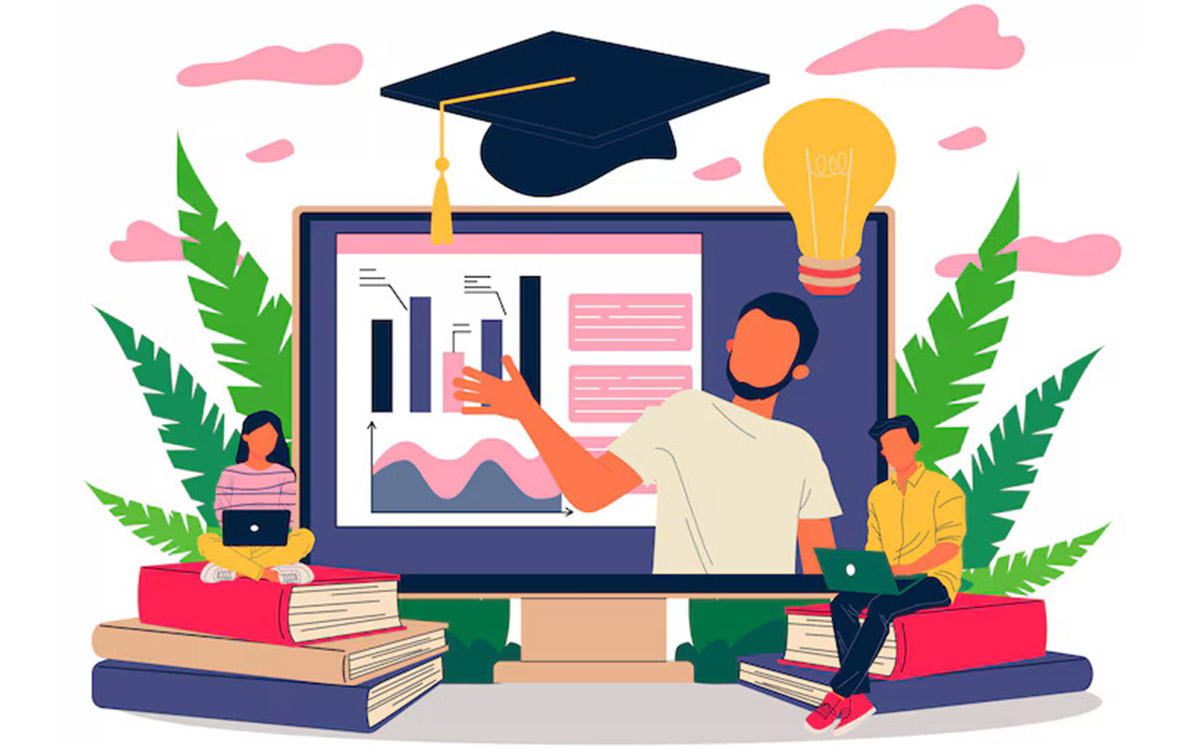12 August, 2025 | Shreyas V Patil

Education is the process of acquiring knowledge, skills, values, beliefs, and habits through various forms of learning. It’s a lifelong process that encompasses formal schooling, informal learning experiences, and personal development. Education aims to develop individuals and prepare them for participation in society, fostering personal growth, critical thinking, and problem-solving abilities.
In this blog post, we will explore both the narrow and broader meaning of education, examining its impact and the necessity of understanding its multiple interpretations.
Understanding the Narrow Meaning of Education
The narrow meaning of education refers to the formal system of instruction and learning that typically takes place in schools, colleges, and universities. This definition focuses on structured curriculum and standardized assessments aimed at imparting knowledge and skills in specific subjects.
Essentially, this aspect of education is concerned with developing cognitive abilities, critical thinking, and academic competence. For example, students might study subjects like math, science, literature, and history. These subjects form the foundation for intellectual pursuits and professional careers. In fact, studies show that individuals with higher education levels tend to earn better salaries, with college graduates making about 66% more than those without a degree.
This narrow definition also elevates the importance of formal qualifications. Degrees, diplomas, and certifications serve as proof of knowledge and skills acquired through this educational framework. However, this perspective often emphasizes the transmission of knowledge rather than the holistic development of individuals.
Limitations of the Narrow Definition
While focusing on formal education highlights essential aspects of learning, it is crucial to recognize its limitations.
A sole focus on traditional education may overlook critical life skills that aren’t typically taught in a classroom. Skills like emotional intelligence, social skills, problem-solving, and creativity are vital for personal and professional success but often fall outside traditional educational structures.
Additionally, this approach promotes a uniform way of learning. Students who do not thrive in conventional settings might be sidelined, possibly holding exceptional talents that are ignored because they do not fit established norms. For instance, a study by the National Center for Learning Disabilities found that up to 20% of school-aged children have learning differences, requiring alternative teaching methods to succeed.
Understanding these limitations leads us to the broader definition of education, which embraces various learning methodologies and experiences.
Understanding the Broader Meaning of Education
The broader meaning of education expands on the narrow definition by incorporating informal and non-formal learning experiences. Education is not confined to classrooms; it exists in various environments—homes, workplaces, communities, and beyond.
For instance, someone can develop leadership skills by volunteering in community projects or learn practical skills through hobbies like cooking or gardening. These experiences equip individuals with valuable insights and abilities that formal education may not provide.
Moreover, this perspective emphasizes the ongoing nature of learning. Education isn’t limited to childhood; it’s a lifelong journey. According to research by the Institute for the Future, 85% of jobs that will exist in 2030 haven’t even been invented yet. This means individuals must continue learning to adapt and thrive in an ever-evolving landscape.
Limitations of the Broader Education
Understanding education in this broader context has unique challenges.
First, there’s a risk of undervaluing formal education by prioritizing informal and experiential learning. While both methods are essential, structured learning remains crucial, especially for foundational subjects.
Furthermore, the wide variety of learning experiences can create confusion. With so many options available, individuals may struggle to discern which skills and knowledge are truly beneficial or relevant for their lives.
Finally, equity becomes a significant concern. If education is broadly defined, disparities in access to learning opportunities can worsen pre-existing inequalities. Research suggests that children from low-income backgrounds are often at a disadvantage, lacking access to enriching experiences, which can widen the knowledge gap.
Thus, while the broader meaning of education enriches our understanding, careful consideration must ensure equitable opportunities for all learners.
The Importance of Integrating Both Perspectives
Rather than viewing the narrow and broad meanings of education as separate, a more holistic approach emerges when both are integrated.
Recognizing the value of formal education does not diminish the importance of informal learning; instead, it highlights their interconnectedness. Formal education lays the groundwork for navigating a complex world, while informal education cultivates adaptability.
Integrating these perspectives encourages educational systems to innovate, addressing the varied needs of individuals and communities. At the Best Educational Institute in Bangalore, this balance is achieved through curriculums intentionally designed to foster academic rigor alongside social-emotional growth, proving holistic development is achievable within formal structures.
Key Components of a Holistic Educational Approach
For educators and policymakers, merging the narrow and broad meanings of education involves considering key components to enhance learning experiences.
Curriculum Design: Educational programs should balance theoretical knowledge with experiential learning. Incorporating project-based learning, internships, and community service can bridge the gap between formal and informal education.
Lifelong Learning Opportunities: Educational institutions should promote lifelong learning initiatives, offering adult education programs and community classes that encourage ongoing development in personal and professional spheres.
Social and Emotional Learning (SEL) : Integrating SEL within educational frameworks supports learners’ emotional and social growth. Skills like empathy and collaboration complement academic learning.
By prioritizing these components, educational systems can better prepare individuals to thrive in an interconnected world and foster critical thinkers who can contribute effectively to society.
Closing Thoughts on Education
Education is a multifaceted concept that defies a single definition. Understanding its narrow and broad meanings illuminates various ways individuals learn and grow throughout their lives.
While formal schooling remains critical, the holistic view includes informal experiences that shape individuals significantly. Acknowledging both perspectives encourages educational systems to adapt, ensuring learners are equipped with the skills and knowledge necessary to succeed.
By embracing the broader definition of education


Shreyas V Patil
Read More






